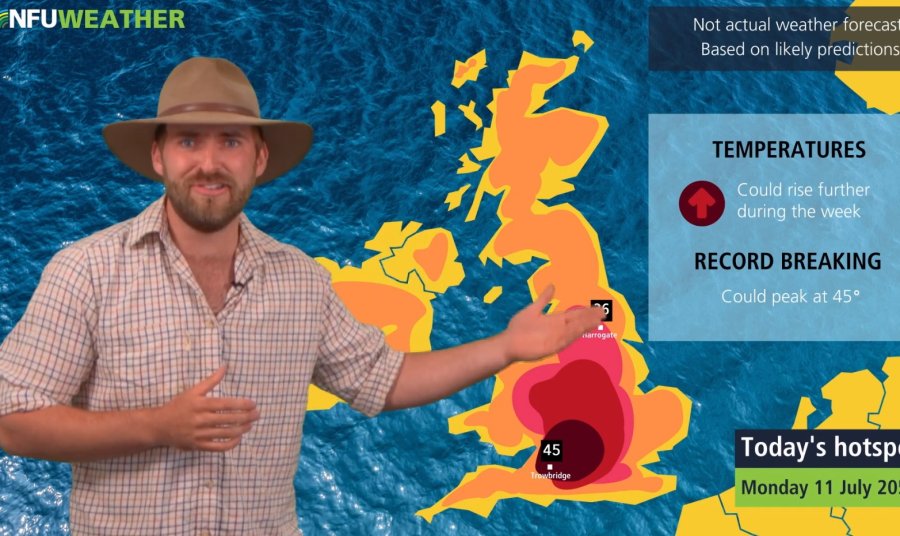
A farmer has provided a mock weather forecast from the year 2050 in a bid to show the impact climate change could have on the British farming industry.
Presented by 28-year-old North Yorkshire farmer James Johnson, the forecast shows the UK's weather conditions 30 years into the future, to July 2050.
The video, created by the NFU, anticipates far drier, hotter summers and suggests the emergence of new crops, and greater collaboration to secure water supplies for food production.
It also shows a changing landscape with more drought resistant tree species and a greater role for farm-scale renewable energy.
In Yorkshire alone, farmers have suffered significant damage when the county experienced three once-in-100-year floods in 2019/20.
Consistently hotter, drier summers also have the potential to severely impact food production in the county.
Alongside growing 14% of the nation’s arable crops, the county also produces 19,000 hectares of potatoes, 16,000 hectares of field vegetables and 200 hectares of glasshouse crops – all relying increasingly on irrigated water in the summer.
The NFU's forecast is designed to prompt discussion about the climate challenges facing British farmers now and in the future.
In particular, the video shows the need for a more joined-up integrated water management strategy to help farmers achieve their goal of pursuing climate-friendly food production.
NFU President Minette Batters has urged government, water companies and farmers to 'properly invest' in water management as a 'critical response' to climate change.
“As the UK gears up to host the UN climate change conference – COP26 – in November, the nation will be at the centre of global discussions on how to respond to climate shifts,” she said.
“From our farmers’ perspective, climate change is already here. Since 2002 we have recorded our top-ten warmest years on record and in Yorkshire they are already at the sharp end of increasingly extreme weather events.”
The Intergovernmental Panel on Climate Change accepts that climate change is affecting food security, predicting that supply could well become more unstable as extreme weather leads to greater disruption.
Mrs Batters added: "We cannot underestimate the importance of food production as we chart a course through our climate challenges.
"We can deliver on our net zero pledge while retaining, if not growing, our agricultural capacity, but adopting a new approach to water will be essential.”
